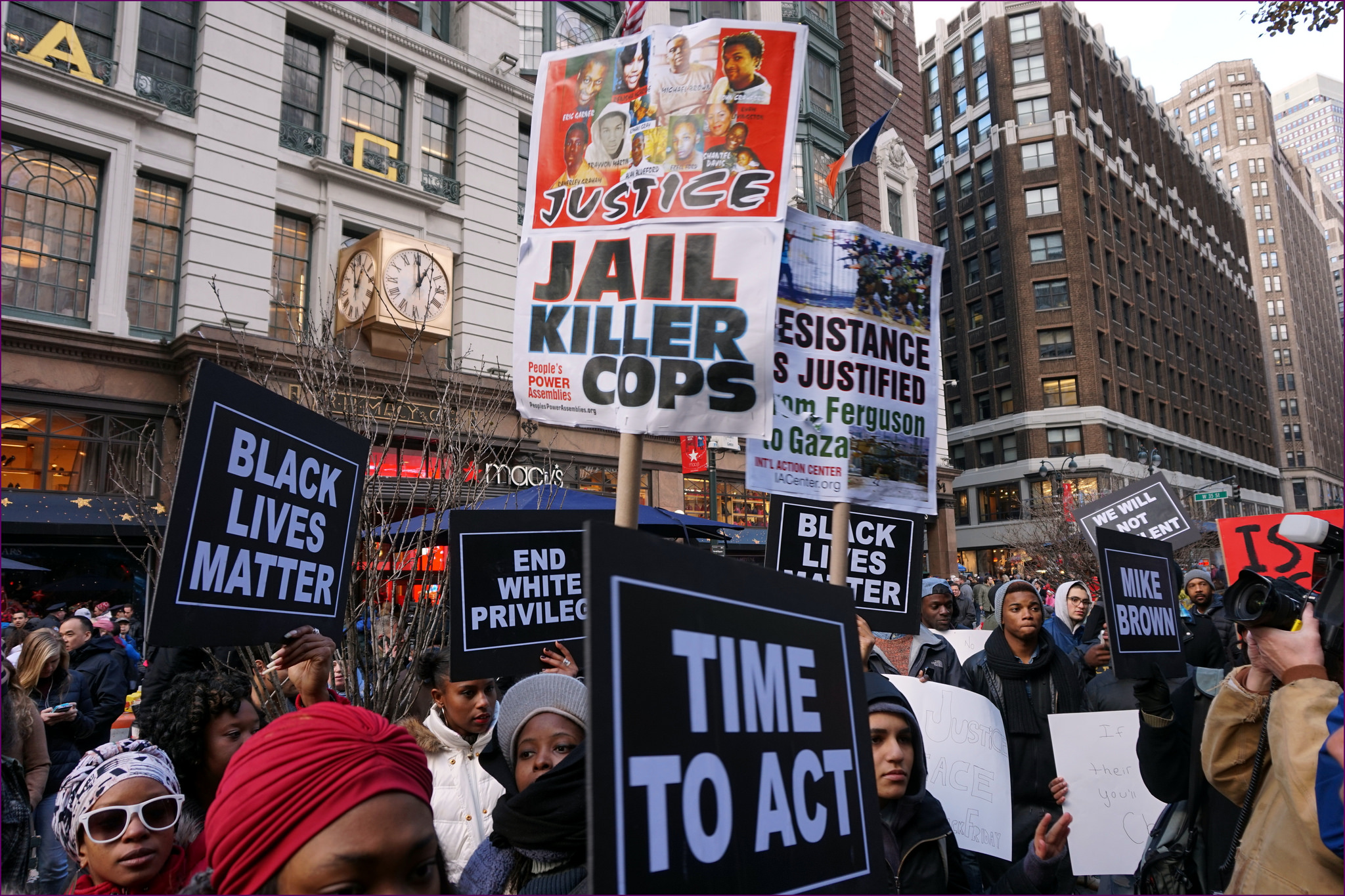Last week marked my first week as a doctor. Like thousands of my colleagues, I began intern year with a combination of enthusiasm and dread. On my first day of clinic, I woke well before dawn, full of nervous energy. I collected my precious intern paraphernalia — my stethoscope, my Pocket Medicine guide and my crisp long white coat. I filled the pockets of my new uniform, smoothed the hems and, as a finishing touch, began applying the pins I wore throughout medical school to the collar.
The first was the bright LGBT rainbow pin I wore, with pride, every day in the hospital. The second was a gift from the Gold Humanism Honor Society upon my initiation to that institution. At the last pin, however, I paused. The words stared up at me: Black Lives Matter (BLM).
I instantly chided myself for the hesitation. What was so different about my support of LGBT health equity and my support of black health equity? What was different about me as an intern compared to a medical student? But the doubt remained. I worried that I would ostracize some of my patients, with whom I was starting to form important bonds. I also worried that I would be judged by my colleagues and mentors, condemned for a supposed political act or viewed as an extremist. I feared that I knew too little about the movement and kept up too irregularly with current events to be able to defend my pin and my position. I was a brand new intern — I didn’t want to rock the boat.
I am a feminist, in part because I am a woman. I am an ally, in part because I identify with the LGBT community. But I am not black. The Black Lives Matter movement has not touched me as viscerally or painfully as it has my black friends, family, colleagues and patients. Therefore, like many white people who feel strongly that our world should be built on equity, I worry that I am overstepping my bounds. An imposter. Perhaps even part of the problem. In some ways, I have reached the boundaries of my empathy with a community whose struggle I have not fully shared. And ultimately, I wonder — can I, as a white woman, really show solidarity with the Black Lives Matter movement?
I think the answer is yes. But I must be willing to do so with humility. I must also be educated, and be prepared to be confronted with my race (perhaps for the first time) as a white person.
I have an elevator pitch for each pin I wear. They are conversation starters, as well as opportunities for education and relationship-building. I have used these pins time and time again to connect with patients, to indicate to them in subtle and (I hope) comforting ways that they are welcome and to open up conversations about important but difficult topics in health and wellness. In anticipating confrontation in my new environment, I took it upon myself to prepare short talking points about my reasons for solidarity with BLM. Here are a few of them:
- All movements for equality are complex. They evolve. There are similarities between the feminist movement, the LGBT rights movement and the Black Lives Matter movement that allow for solidarity, strategy sharing, networking and identity recognition. That is powerful, and can allow for enhanced empathy and activism across communities.
- But these efforts are not the same, and I avoid essentializing. Not all women are feminists. Not all LGBT individuals fought for marriage equality. The intersections of race and ethnicity, gender identity and sexual orientation and politics and community allow for an incredibly diverse world of opinions. No movement can capture all of that.
- Many of the above mentioned movement have had violent elements. As a physician, I cannot condone violence: whether domestic violence, gang violence, police brutality or terrorism. These, for me, are public health crises that put people in hospitals. I struggle with that element of BLM, as with all violence associated with efforts at betterment and transformation.
- My list of solidarities is not endless, and it too evolves. I have not yet found a Blue Lives Matter pin. I am wary of conflating an occupational identity, which (depending on your political theology) is optional, with an identity one was born with and/or did not choose. But these movements are not mutually exclusive. Police officers are patients, and as such deserve the same treatment, empathy and kindness from me as all my patients.
- I chose to become a physician so I could be an instrument for social justice. I believe that health issues are social issues, and vice versa. Not everyone in my field agrees with me. Talking medicine and politics is tough; it often doesn’t win you friends. But if you truly believe in the social determinants of health, and you work to address those with your patients, the impact can be more meaningful, dramatic and long-lasting than any medical or surgical intervention.
I look forward to refining these points, through conversations with my colleagues, mentors and patients. I look forward to comments from readers. I am prepared for confrontation. But I hope more than anything that the small gesture of these pins will allow someone who comes into my office as a victim of discrimination — based on race or ethnicity, gender identity or sexual orientation, political or economic position or any other identity — to feel welcome, to know they are in a safe space, to educate themselves as well as me and ultimately to be given the best care possible. That is my pledge as a new physician.

Katharine Lawrence, MD is an internal medicine resident in New York City. She received a BA in anthropology from Vassar College, and a Master’s of Public Health from the Mount Sinai School of Medicine. She attended FIU Herbert Wertheim College of Medicine in Miami, FL. Katharine’s writing has appeared in numerous medical and literary journals, including Hektoen International, The New Physician, and KevinMD.
Image source: Black Lives Matter Black Friday by Otto Yamamoto licensed under CC BY-SA 2.0.

